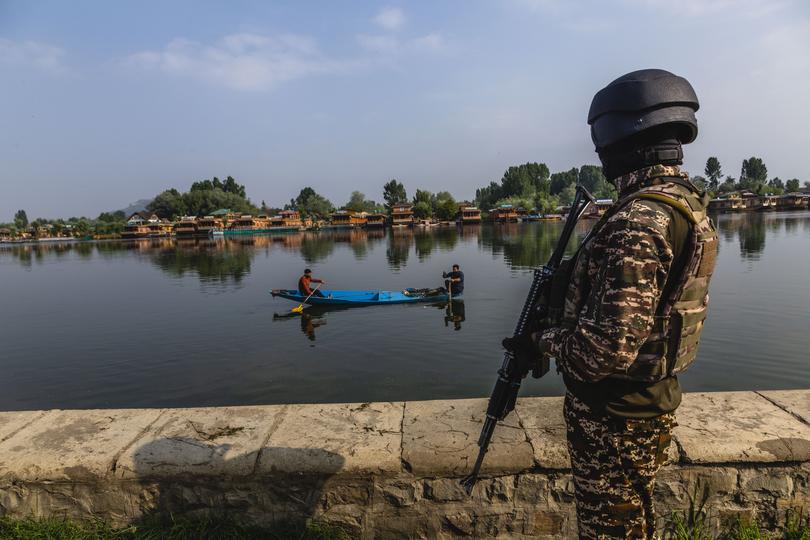BEN MCCLELLAN: Mitchell Starc among Australian players who must decide if they return to India for IPL
BEN MCCLELLAN: The decision to continue the tournament - and to do so in harm’s way - could play a role in which Australian players return to India.
Australia’s cricketing stars face a tough decision – do they stay at home, safe and sound, or do they fly back to India to rejoin the IPL?
For some players, their IPL franchises are still in the hunt for the title, so the expectation on them to return — amid assurances of safety from the Board of Control for Cricket in India (BCCI) and the Indian Government— is greater.
For those players whose teams will not feature in the playoffs, the decision not to return is a little easier.
Sign up to The Nightly's newsletters.
Get the first look at the digital newspaper, curated daily stories and breaking headlines delivered to your inbox.
By continuing you agree to our Terms and Privacy Policy.To complicate matters further, those Australians who play in the Test squad — Pat Cummins, Travis Head, Josh Inglis, Josh Hazlewood, and Mitchell Starc —now have less preparation time for the World Test Championship Final on June 11 at Lord’s, with the IPL final now scheduled for June 3.
Undoubtedly, there will be pressure from the BCCI to return to ensure the prestige of the tournament, but Cricket Australia says it will back any player who decides not to return.
Cummins looks likely to return, but Hazlewood’s shoulder injury means he will stay home.
Given the shambolic way the IPL and Indian Government handled the situation, you could forgive the players for not wanting to rush back.
It’s a surprise it has taken until now for the long-running hostilities between India and Pakistan to derail the most lucrative cricket tournament in the world after nearly 20 years.
As bombs fell and drones flew between the warring neighbours, the IPL pressed on with its game in Dharamshala, involving Ricky Ponting’s Delhi Capitals —whom Starc plays for — in the northwest of the country, just 200km from the Pakistan border.
With officials fearful the floodlit stadium could become a target of the Pakistan Air Force, the match was hastily abandoned, and players and teams were rushed to safety in near darkness.
Starc’s wife and Australian cricket captain Alyssa Healy described in chilling detail the chaotic scenes as players —some with no shoes on — and their families were whisked into buses and transported back to Delhi along roads peppered with Surface-to-Air Missile sites.
Healy complained that assurances everything would be fine quickly came undone, and that the misinformation players and families received was the most troubling aspect of their escape.
If the Australian stars — and more importantly, their families — don’t feel they can trust the IPL to adequately protect them, then that could influence the decision of the players to return for the completion of this season and for future seasons on the subcontinent.
The short break between the conclusion of the IPL and the WTC Final could also provide the Test-playing players with a strong argument for not returning to India, especially if their team is out of finals contention.
Such a decision could divide the players, with some more heavily invested in their IPL franchises as captains like Cummins, and former Australian Test greats Ricky Ponting and Justin Langer among the league’s coaches.
Ponting deboarded the plane he was on after word of the ceasefire broke on Saturday and implored his team to do likewise — a gesture that will further cement his legend in India.
Ponting is the ultimate competitor, but some players may not be as willing to gamble that the fragile peace will continue.
It’s hard to imagine Pakistan would deliberately target an IPL match given its love of cricket, but the wrong targets being hit are commonplace in war, no matter how high-tech the adversaries are.

David Warner and several Australian players will rejoin the Pakistan Super League as it resumed competition which might spur his countrymen to do likewise in the IPL.
The IPL games will now resume in the southern parts of India, but the question remains, why weren’t the games moved there as soon as the fighting broke out last week?
Putting the highest-paid players in the world near a conflict zone appears to have been a poor decision — one that may take some of the shine off the prospect for players of earning ridiculous sums of money for a few months’ work.
